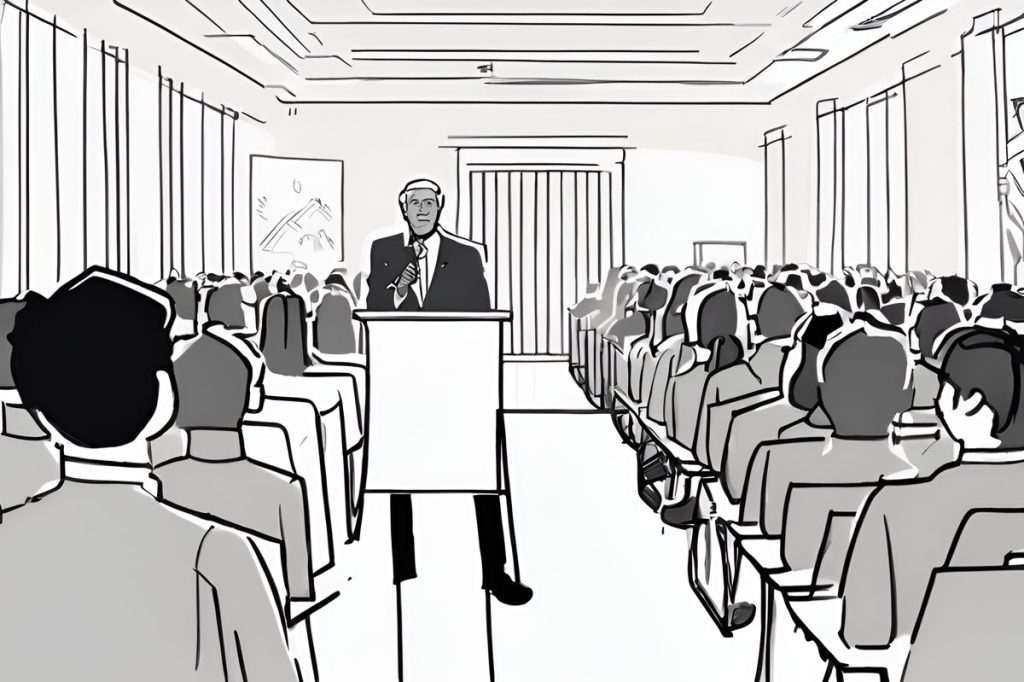President Nikos Christodoulides’ proposal for non-binding referenda raises questions about their actual impact on government decisions, sparking debates over participatory democracy versus symbolic gestures. As public perception shifts towards a desire for genuine leadership and effective policies, the President’s approach to governance faces scrutiny, with challenges such as the Cyprus issue and balancing popular ideas with practical actions shaping his legacy.
What is the efficacy of non-binding referenda as proposed by President Nikos Christodoulides?
Non-binding referenda, as proposed by President Nikos Christodoulides, face scrutiny regarding their effectiveness. Although they aim to enhance participatory democracy, their outcomes don’t compel government action, raising concerns about whether they are merely symbolic gestures that prioritize public image over substantial change.
Participation or Pretense?
When President Nikos Christodoulides proclaimed to a group of secondary school students that the government intended to hold non-binding referenda, it raised eyebrows and posed questions about the efficacy and sincerity of such a gesture. Emphasizing “participatory democracy,” the President’s pitch aligned neatly with his campaign narrative. However, the practicality of non-binding referenda remains debatable. After all, if the outcomes hold no sway over government action, do they serve as anything more than an ornamental nod to public opinion?
The ancient Athenian model of democracy, where people’s decisions were binding, starkly contrasts this modern iteration where politicians may cherry-pick which results to honor. In such a context, the President’s allusion to a potential referendum on lowering the voting age seemed particularly incongruous. Notably, the engagement—or lack thereof—of today’s youth in political processes adds another layer of complexity to the discussion.
Public Perception and Leadership
President Christodoulides’ tenure has, thus far, been punctuated by efforts that seem to prioritize public image over substantive change. For example, the establishment of a consultative council and numerous committees that have little to no tangible impact illustrates a tendency towards bureaucratic pageantry. Similarly, certain proposed initiatives, such as appointing an EU representative for the Cyprus problem and establishing a sea corridor for aid to Gaza, lacked viability from the outset due to political impracticalities.
In light of these actions, public opinion polls reflect a growing disillusionment with the President’s approach. The desire for decisive leadership and effective action seems to be at odds with a perceived preoccupation with visibility and public relations exercises. This sentiment suggests that while campaigning strategies can attract voter attention, they might not translate into successful governance tactics.
Policy and Diplomacy in Focus
Despite the criticisms, President Christodoulides has made strides in foreign policy, positioning Cyprus closer to Western allies by enforcing sanctions against Russian oligarchs and showing solidarity with the EU and US regarding the conflict in Ukraine. These moves signal a clear geopolitical stance, but they constitute only one facet of presidential duties.
Addressing the longstanding Cyprus problem represents a formidable challenge for Christodoulides. His rhetoric has consistently highlighted the unsustainability of the status quo and the urgency of reunification. Over the forthcoming months, his leadership will be tested on this front, potentially shaping his legacy. Will his presidency be defined by bold, history-making achievements, or will it be characterized by ephemeral ideas and policies with limited impact?
The Road Ahead
Looking to the future, a shift in style might alter public perception and trust in President Christodoulides’ governance. Continual engagement with citizens, whether through referenda or other means, must go beyond surface-level interactions to foster genuine political participation. The President’s legacy hinges on his ability to navigate these complex waters, balancing the allure of popular ideas with the hard realities of political decision-making and action.
What is the efficacy of non-binding referenda as proposed by President Nikos Christodoulides?
Non-binding referenda, as proposed by President Nikos Christodoulides, face scrutiny regarding their effectiveness. Although they aim to enhance participatory democracy, their outcomes don’t compel government action, raising concerns about whether they are merely symbolic gestures that prioritize public image over substantial change.
How does the use of non-binding referenda impact the perception of participatory democracy?
The use of non-binding referenda by President Nikos Christodoulides raises questions about the authenticity of participatory democracy. While advocating for increased citizen involvement in decision-making processes, the lack of binding outcomes from these referenda may lead to skepticism about the government’s commitment to truly valuing public opinion.
What challenges does President Christodoulides face in balancing popular ideas with practical actions?
President Christodoulides faces the challenge of balancing popular ideas and symbolic gestures with practical actions that can bring about tangible change. The need to address pressing issues such as the Cyprus problem while also responding to public sentiment requires a delicate balance to ensure effective governance.
How has President Christodoulides’ approach to governance influenced public opinion and his legacy?
President Christodoulides’ approach to governance, characterized by a mix of symbolic gestures and bureaucratic initiatives, has led to a growing disillusionment among the public. While his foreign policy decisions have garnered some praise, the overall perception of his presidency hinges on his ability to deliver substantive results and navigate complex political challenges effectively.

